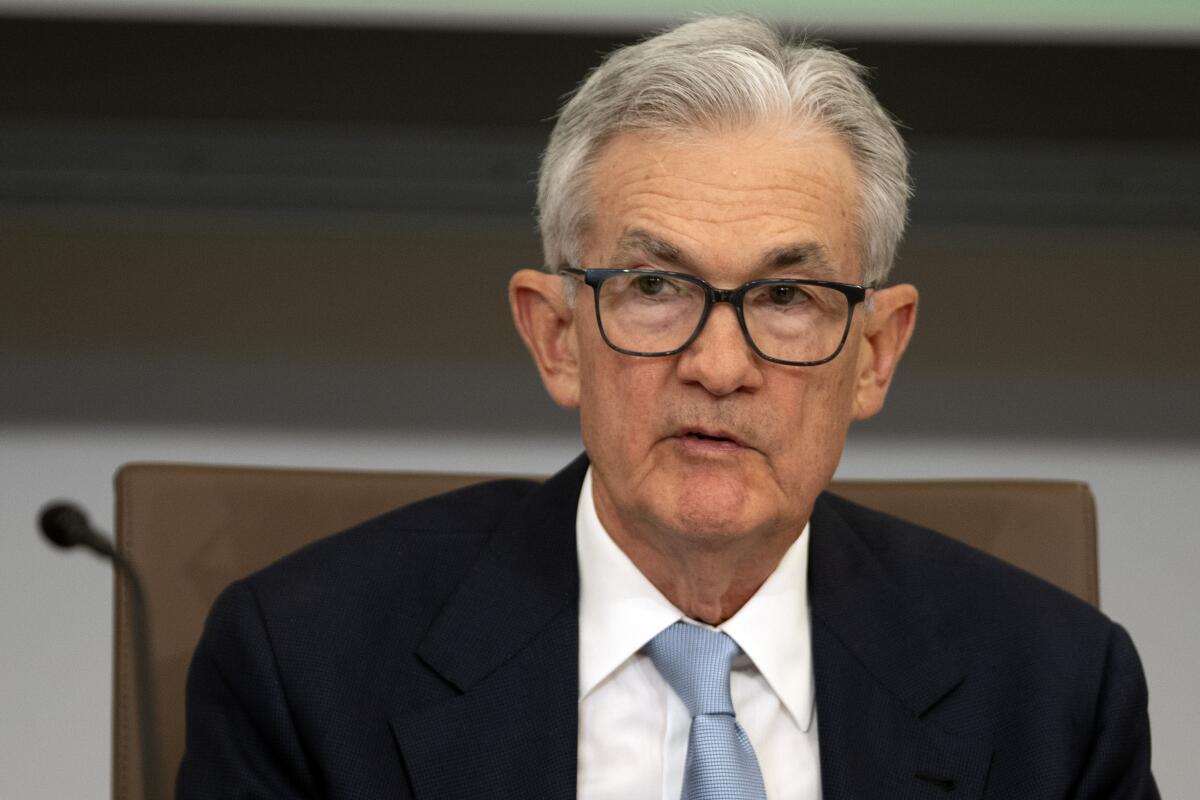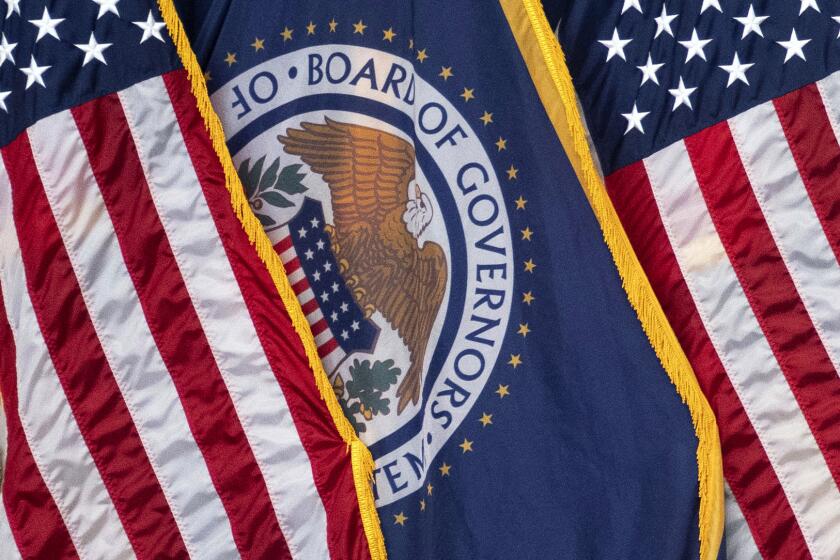Slower economic growth may be needed to conquer stubbornly high inflation, Fed Chair Powell says

- Share via
Federal Reserve Chair Jerome H. Powell said Thursday that inflation remains too high and that bringing it down to the Fed’s target level will probably require a slower-growing economy and job market.
Powell noted that inflation has cooled significantly from a year ago. But he cautioned that it’s not yet clear whether inflation is on a clear path back to the Fed’s 2% target.
“A few months of good data are only the beginning of what it will take to build confidence that inflation is moving down sustainably toward our goal,” Powell said in remarks to the Economic Club of New York. “We cannot yet know how long these lower readings will persist or where inflation will settle over coming quarters.”
Last month, Fed officials predicted that they would impose one more interest rate hike before the end of the year, on top of a series of 11 rate increases that have lifted their key rate to about 5.4%, its highest level in 22 years. Economists and Wall Street traders expect the central bank to leave rates unchanged when it next meets in about two weeks.
Inflation’s relentless surge didn’t merely persist in June. It accelerated. Here’s why.
What it will do after that is less clear. In his remarks Thursday, Powell echoed other Fed officials in suggesting that the economy is at a turning point: If growth remains as healthy as it has been since this summer, additional rate hikes could be needed. But any sign of weaker growth or hiring could help slow inflation and allow the Fed to keep rates unchanged.
Beginning in March 2022, the Fed’s inflation fighters have raised their benchmark rate at the fastest pace in four decades. Those rate hikes have led to much higher borrowing rates across the economy, tightening the financial pressures on households and companies.
A string of Fed officials recently signaled that a rapid increase in longer-term interest rates, including the average 30-year fixed mortgage, which is nearing 8%, will likely cool the economy and help slow inflation. That would allow the Fed to stay on hold and observe how growth and inflation evolve in the coming months.
But several recent economic reports have suggested that the economy is growing robustly and that inflation could remain persistently elevated, which could require further Fed action.
“Additional evidence of persistently above-trend growth, or that tightness in the labor market is no longer easing,” Powell said, “could put further progress on inflation at risk and could warrant further tightening of monetary policy.”
The Federal Reserve left its key interest rate unchanged for the second time in its last three meetings, a sign that it’s moderating its fight against inflation.
In September, hiring was much greater than had been expected, with the unemployment rate staying near a half-century low. Strong hiring typically empowers workers to demand higher wages, which, in turn, can worsen inflation if their employers pass on the higher labor costs by raising their prices.
Yet so far, Powell noted that wage growth has slowed. Other measures of the job market are also cooling, a trend that could keep inflation contained. Indeed, even with solid economic growth, inflation has largely decelerated: The Fed’s preferred measure of price changes eased to 3.5% in September compared with 12 months earlier, down sharply from a year-over-year peak of 7% in June 2022.
On Wednesday, Christopher Waller, an influential member of the Fed’s governing board, suggested that the slowdown in inflation even as the economy has remained healthy is “great news” but also “a little too good to be true.” He noted that growth could either slow, helping cool inflation, or remain strong, fueling higher inflation and requiring further rate hikes by the Fed to contain it.
“It is too soon to tell,” Waller said. “I believe we can wait, watch and see how the economy evolves before making definitive moves.”
More to Read
Inside the business of entertainment
The Wide Shot brings you news, analysis and insights on everything from streaming wars to production — and what it all means for the future.
You may occasionally receive promotional content from the Los Angeles Times.












